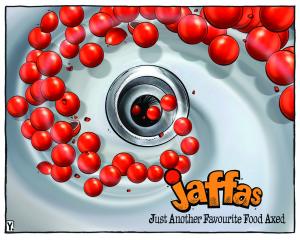
There is a statue of George Orwell (1903-50) outside Broadcasting House, the headquarters of the BBC in London.
His words appear on the wall behind the statue: "If liberty means anything at all, it means the right to tell people what they don’t want to hear."
Apart from being a wonderful journalist, essayist, critic and novelist Orwell was a powerful advocate for free speech, but was always concerned at the ease with which the state and its institutions could curtail this, as reflected in his novel Animal Farm.
Although this story is an allegory based on the 1917 Russian Revolution, he could see that there were other political systems more than capable of curtailing and censoring free speech. Regrettably, it seems that the BBC can no longer claim to be a guardian of this either, where frequently only a limited range of opinions are expressed that commonly align with other mainstream media outlets. One of the finest journalists ever was Alistair Cooke, the British-born American journalist, TV personality and broadcaster who died in New York City in 2004 aged 95. He was particularly well known for his Letter from America, first broadcast in 1946 with a final one delivered 58 years later, prior to his death.
Cooke cites his American mentor H. L. Mencken who said to him in 1937 at the time he became an American correspondent: "Since there is no such thing as ideological truth, it follows that to the extent a reporter is a liberal reporter or a conservative reporter, or a Democratic or communist or Republican reporter, he is no reporter at all."
Cooke goes on to say that his own test is a simple one: "You should not know from a good reporter’s work how he votes."
Alistair Cooke’s letters were notable for their diversity, clarity of thought, humour and eloquence. He expressed himself with a certain grace and elegance, striving where possible to find the best rather than the worst features of human kind, but there were also rare occasions where he could be quite scathing.
Many of today’s communications lack quality and substance. Sensationalism, lack of balance and bias are not uncommon.
Rather than seeking the higher ground, journalism and other media not infrequently plunge into the depths of cynicism and negativity whether consciously or unconsciously, creating unnecessary division and polarisation.
There are of course exceptions. Those aspiring to be balanced and fair should be admired and valued. They truly uphold the legacy set by George Orwell and H. L. Mencken.
One wonders how Alistair Cooke would view events in America and elsewhere during recent years. Would he still be optimistic as he had generally been over almost six decades, or would his letters be clouded with pessimism?
One can only surmise and although he would undoubtedly be saddened by current, often unhelpful rhetoric and overall diminished standards, it is probable that his magnanimous nature would still be shining a light full of hope and inspiration, with his inimitable presentations and letters still flowing from his study across New York’s Central Park to the world. Always it seems, aiming for the stars.
If ever a current role model was needed for journalism it would be the late and great Alistair Cooke.
— Joss Miller is a retired Dunedin lawyer.











